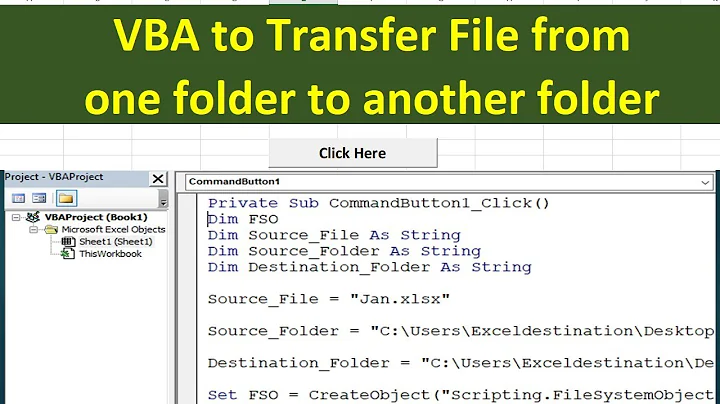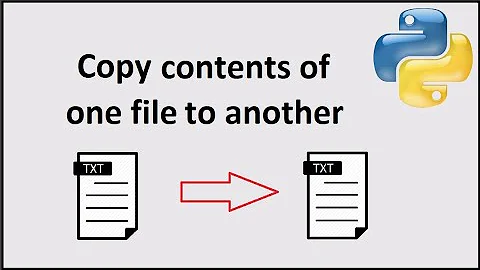Read a file and copy to another file
Solution 1
Quote your variable:
echo "$line" >> /tmp/dest_file
Solution 2
This has come up several times already on this site — see Understanding IFS and the linked questions. In this answer, I'm going to summarize what can go wrong and how to avoid it; see the linked threads for details.
read line performs the following actions:
- Read from standard input up to the first byte that is either a newline or null, and put the data in the variable called
line. - Strip off any backslash that is not at the end of the line. A double backslash
\\becomes a single backslash. In other words, backslash quotes the next character as long as it isn't a newline. - If
readstopped at a newline and the character at the end of the line is a\, strip the backslash-newline sequence and continue reading, appending to the variableline. Repeat until the first of: a newline that is not preceded by a backslash; a null byte; the end of the input. - Strip the longest suffix of
linethat is made of characters in$IFS. By default,IFScontains a tab, a space and a newline, so this strips ASCII whitespace from the end of the value ofline. - Strip the longest prefix of
linethat is made of whitespace characters in$IFS.
For example, if the input is
: hello\
world: :
wibble
then read line results in line containing : helloworld: : (no initial space) with the default value of IFS. If IFS has been changed to : (just a colon) then read line results in : helloworld: (with a space at the beginning and at the end). If IFS contains both : and a space then the result is : helloworld (no initial or trailing space).
To avoid the influence of IFS, set it to an empty value (note that this is different from unsetting it). You can set it only for the read command by writing IFS= read (see Why is `while IFS= read` used so often, instead of `IFS=; while read..`?).
To avoid backslash processing, pass the -r option to read.
Unless the shell is zsh, if there is a null byte in the input, then subsequent characters are lost. Shells are not designed to read binary data.
Thus the idiom for reading one line at a time is:
while IFS= read -r line; do
… # process "$line"
end
When you use the variable line, make sure to always put double quotes around variable substitutions: "$line". Without double quotes, the shell first expands the value of the variable, then it breaks that value into separate words wherever it contains characters from IFS, and every word is interpreted as a wildcard pattern and replaces by the list of matching files (if there are no matching files, the pattern is left as is). So echo 'a* b*' | IFS= read -r line; echo $line expands to the list of files in the current directory beginning with a or b; to get the input unchanged, use echo 'a* b*' | IFS= read -r line; echo "$line".
Note also that the echo command sometimes modifies the string it prints. The exact way depends on the shell. Some shells process backslash escapes, and some shells recognize options. Using echo to output a string verbatim is only sure to work you know that the string does not contain any backslash and does not start with a dash (-). A reliable and portable way of printing a string as is is
printf '%s\n' "$line"
This prints a newline after the string, like echo. You can omit the newline by omitting \n in the command above.
Related videos on Youtube
BitsOfNix
Working mainly with Solaris and Linux. System administration!
Updated on September 18, 2022Comments
-
BitsOfNix over 1 year
I'm having a issue, I need to copy the file contents and remove a couple of lines if they match the output from a previous command. But so far, I'm having an issue in maintaining the file lines exactly the same. I'm putting the simple part of the script as the if to omit the copy are not part of the problem as this happens with unaffected lines.
For the example:
In the original file I have the following
Testing, resuming textWhen run the script the fields become:
Testing, resuming textI'm doing the following:
#!/usr/bin/bash rm /tmp/dest_file while read line do echo $line >> /tmp/dest_file done < $1The problem I have with this is that the files will become different due to the tab formatted fields.
-
BitsOfNix over 11 yearsThanks a lot! I wasn't aware that quoting is also valid for variables.
-
Angel Todorov over 11 yearsquoting is especially important for variables. Always quote variables, unless you specifically want the word-splitting effect you've seen here.
-
 Gilles 'SO- stop being evil' over 11 yearsThis is necessary but not sufficient. The
Gilles 'SO- stop being evil' over 11 yearsThis is necessary but not sufficient. Thereadcall also strips leading and trailing whitespace, and processes backslash escapes. -
Guru over 11 years@Giles : +1, I am a big fan of your explanation, thank you ...
-
BitsOfNix over 11 yearsthough I searched over the site and google it I did not found what I was looking for. In either case I thank you for your explanation and the link for the explanation of IFS. It is now saved for future reference that I might need.




